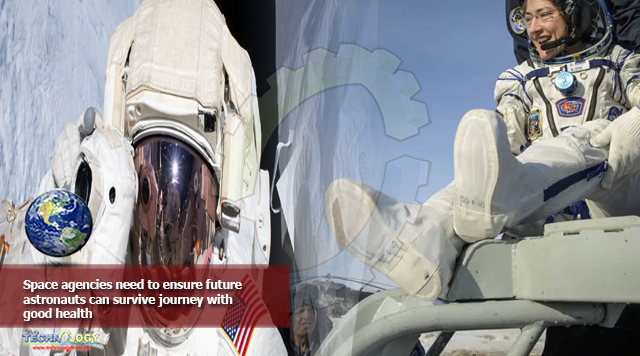As space agencies prepare for longer duration flights to the Moon and Mars, they need to ensure that future astronauts can survive the journey. Preliminary studies suggest time spent in space does affect our health — and perhaps even alter our brains.

Space Agencies Need To Ensure Future Astronauts Can Survive Journey With Good Health : FOR MORE THAN 50 YEARS, HUMANS HAVE BEEN VENTURING OUT INTO SPACE, and yet little is known about the physical toll these long flights in microgravity take on the human body.
As space agencies prepare for longer duration flights to the Moon and Mars, they need to ensure that future astronauts can survive the journey. Preliminary studies suggest time spent in space does affect our health — and perhaps even alter our brains.
A pair of recent studies identify potential solutions for a set of worrying symptoms that astronauts have shown following long duration spaceflight — namely, problems with metabolism, and bone and muscle loss.
The first study, published Tuesday in the journal Frontiers in Physiology, suggests that gut microbes could keep humans healthy during spaceflight. The second study, published Monday in the journal Proceedings of the National Academy of Sciences, suggests targeting a mechanism in human cells to help prevent the loss of bone and muscle mass.
MOTION SICKNESS — Being in a microgravity environment can often cause nausea, and reduce the appetite of astronauts, which can in turn disrupt their gut microbiome. The microbiome is the name given to community of microbes that live inside our bodies, controlling digestion and a host of other functions (and maybe even influencing our mental health).
Once in space, these changes can lead to malnourishment, making astronauts more prone to inflammation and infections, and other immune system deficits. It may also affect their mental health and cognitive abilities, according to the Frontiers study.
Previous research suggests astronauts tend to have similar gut microbiome as their peers while on space missions together. There’s also some indication they experience an increase in bacteria related to intestinal inflammation, while the bacteria associated with anti-inflammatory properties tend to decrease.
“The well-being of the gut microbiome of space travelers should be among the primary goals of long-duration exploratory missions,” Martina Heer, professor at the University of Bonn, and co-author of the study, said in a statement.
“To ensure the success of the mission, we must not overlook the myriad of microorganisms that reside in our gastrointestinal tract and make sure they are in balance,” he said.
In order to promote astronauts’ healthy guts, the study suggests a change in typical space nutrition. The diet includes more probiotics and prebiotics, which are found in foods such as yogurt, pickles, and miso, or targeted supplements.
BUILDING UP BONE — The second study, which was done in mice, is focused on understanding bone and muscle health during longer duration periods of microgravity.
Being in a microgravity environment causes humans to lose some of their muscle and bone mass. This is despite attempts of enforcing regular exercise on spacecraft such as the International Space Station to help promote use of muscles.
Targeting a cellular mechanism, known as the myostatin/activin-ActRIIB pathway, may prevent the loss of muscle mass, the study suggests. Myostatin and activin are secreted proteins that limit the growth of muscles and bones. Blocking these proteins has perviously been shown to prevent the loss of muscle for people undergoing treatment for cancer.
The study tested out this method on mice who were exposed to the same microgravity environment of the ISS for a total of 33 days.
Mice treated with the injections to block the proteins showed significant recovery to their muscle and bone mass loss once they had returned to “Earth” gravity.
The authors of this study suggest that a treatment could be developed for humans during long-duration spaceflight to prevent their loss of bone and muscle mass, too, but more work is needed to understand whether this method is applicable in humans.
Originally published at Inverse